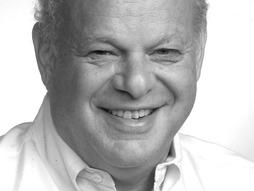Can imagination be measured?
Like any human performance metric -- IQ, LSAT scores, batting averages -- the new Imagination Quotient is intended to predict a competitive advantage. But does it work?
Continue reading
Martin Seligman founded the field of positive psychology in 2000, and has devoted his career since then to furthering the study of positive emotion, positive character traits, and positive institutions. It's a fascinating field of study that had few empirical, scientific measures -- traditional clinical psychology focusing more on the repair of unhappy states than the propagation and nurturing of happy ones. In his pioneering work, Seligman directs the Positive Psychology Center at the University of Pennsylvania, developing clinical tools and training the next generation of positive psychologists.
His earlier work focused on perhaps the opposite state: learned helplessness, in which a person feels he or she is powerless to change a situation that is, in fact, changeable. Seligman is an often-cited authority in this field as well -- in fact, his is the 13th most likely name to pop up in a general psych textbook. He was the leading consultant on a Consumer Reports study on long-term psychotherapy, and has developed several common pre-employment tests, including the Seligman Attributional Style Questionnaire (SASQ).
Like any human performance metric -- IQ, LSAT scores, batting averages -- the new Imagination Quotient is intended to predict a competitive advantage. But does it work?
Continue readingPositive psychologist Martin Seligman talks about psychology — both as a developing field of study, and as it works one-on-one with each patient and each practitioner. As it moves beyond a strict focus on curing mental disorders and dis-ease, what can modern psychology help us to become? (Recorded February 2004 in Monterey, California. Duration: 23:41.) […]
Continue reading